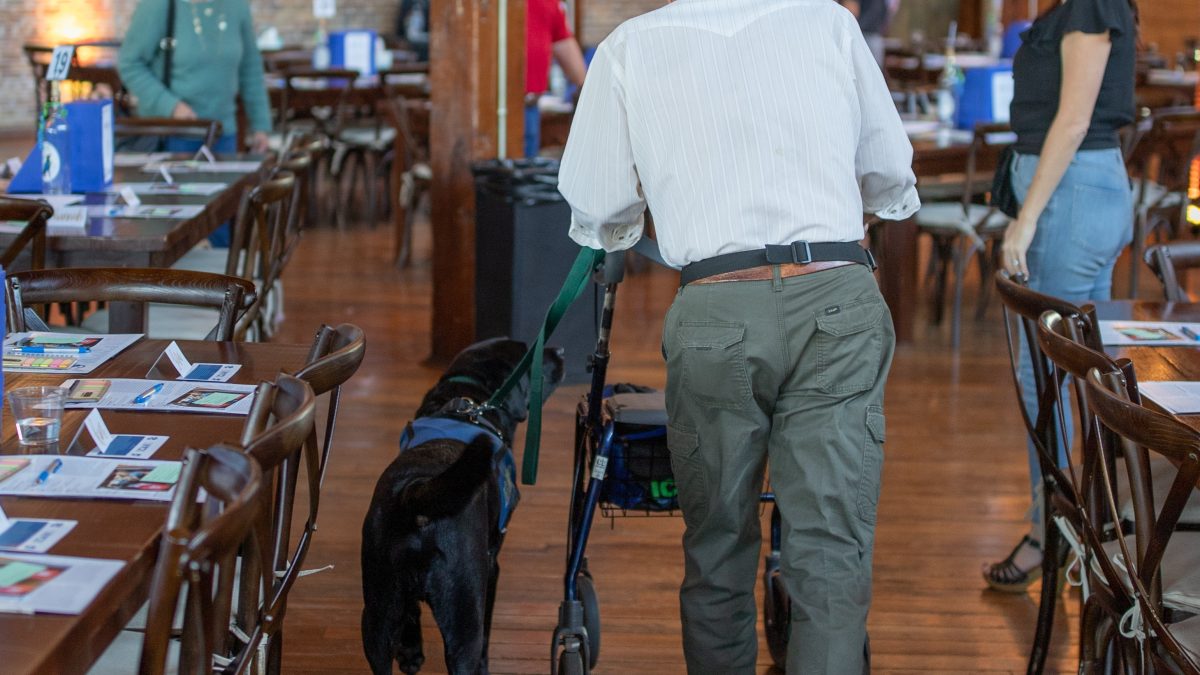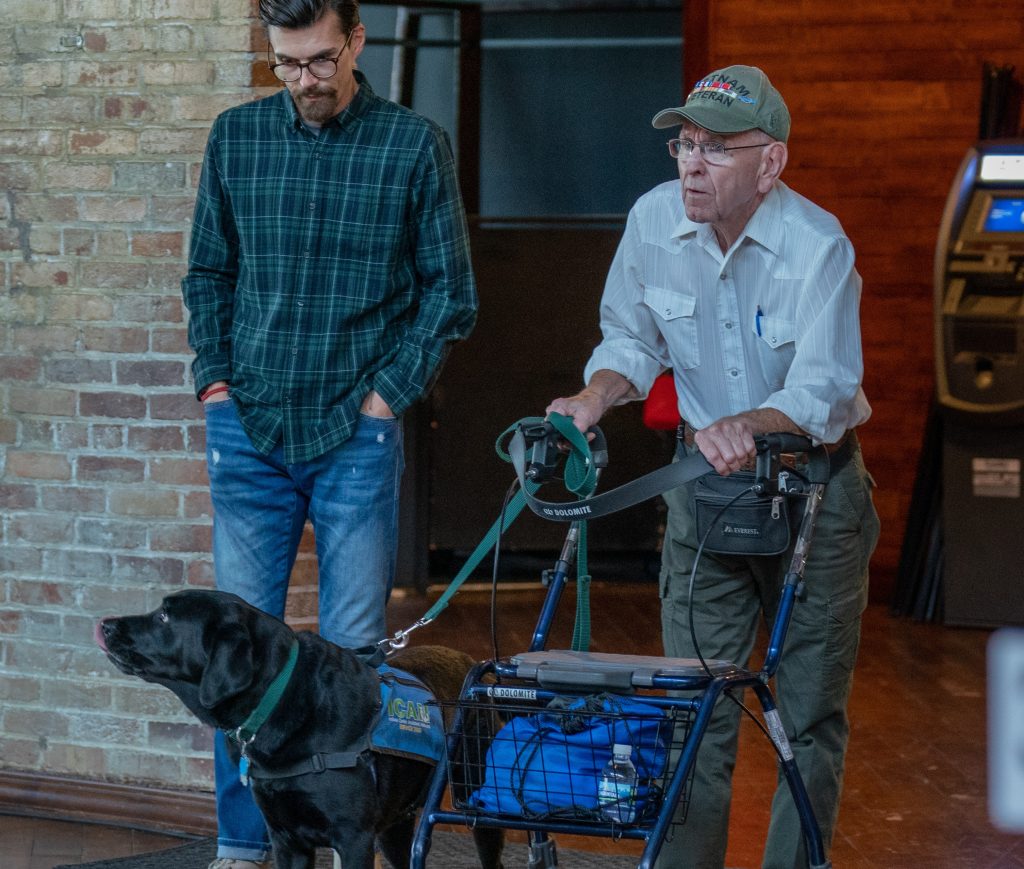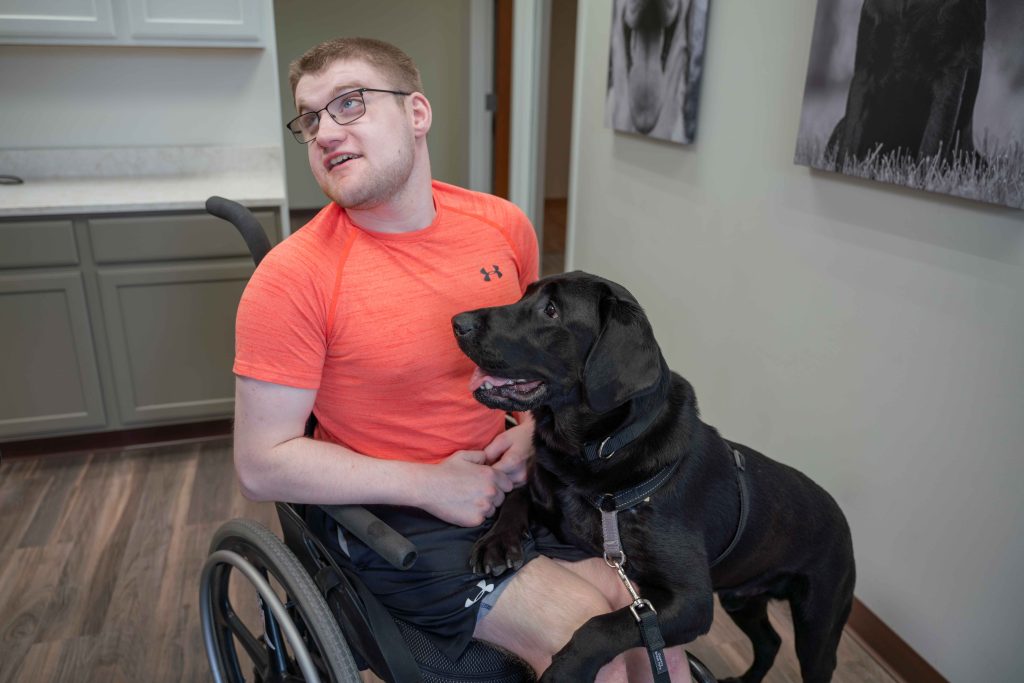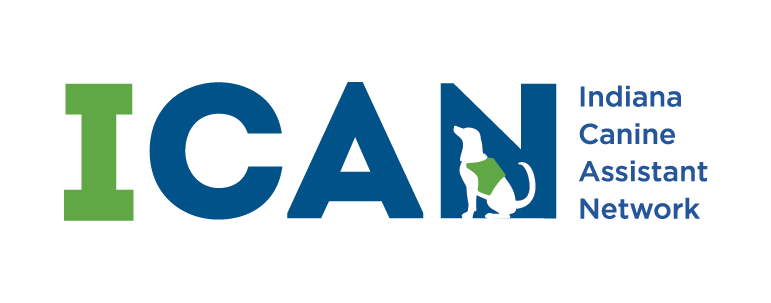Veteran Service Dogs: How They Help

For many veterans, service-related trauma significantly impacts their day-to-day activities and quality of life. With the help of a specially trained service dog, these veterans can begin to heal from their trauma, gain independence, and unleash possibilities.
While mobility assistance dogs are trained to help veterans with mobility struggles—veteran service dogs are trained specifically to help veterans suffering from psychiatric disorders like PTSD, MST, and TBI.
Keep reading to learn about a few of the many tasks veteran service dogs are trained to do in order to assist their handler!
1. Interrupting and Calming Anxiety Behaviors
Veterans returning from duty often experience psychological struggles that affect their daily routine. For example, many have sleep trouble and endure things like vivid dreams and night terrors. Some veterans may also experience sudden and unexpected flashbacks of traumatic events that can be difficult to cope with.
ICAN veteran service dogs are trained to recognize these nightmares and flashbacks and respond by nudging with their nose, licking, or lying on the chest of the handler and either waking their handler up or interrupting the flashback.
Following an episode, the service dog is able to assist in grounding, refocusing, and calming the handler by providing further tactile stimulation and deep pressure therapy.

2. Helping to Create Peace of Mind
One of the many symptoms of PTSD and other anxiety disorders is hyper-vigilance and a sense that danger could be around every corner. These symptoms are stressful and exhausting and may interfere with an individual’s ability to accomplish daily activities.
ICAN veteran service dogs are trained to perform various tasks to mitigate these symptoms in their handler. For example, a cue called “wingman” can be taught where the service dog stands directly behind their handler in order to create space and prevent anyone from walking up behind them.
A veteran service dog may also be trained to look around the corner of aisles or doorways to calm the handler’s sense that there is something threatening on the other side. In addition to checking around corners, ICAN dogs can also search and “clear” entire rooms or houses in order to ease the handler’s nerves.
3. Giving Medication Reminders
Many people living with psychiatric disorders and symptoms related to PTSD, MST, and TBI have difficulty adhering to a schedule and remembering to do daily tasks.
Not only can ICAN veteran service dogs remind their handler to take important medications—they can also retrieve the medications as well as a beverage to bring to the handler. These tasks help the handler to manage psychiatric disorders in a consistent and healthy way.

4. Assisting in Social Situations
Veteran service dogs can also help their human partner in social situations. Social isolation is a common problem for people with mental health struggles because they may have gaps in memory, difficulty speaking or participating in social situations, and find public outings intimidating and unpredictable. This social anxiety can lead to emotional distress or trigger flashbacks.
However—having a support system of other people is crucial for veterans struggling with service-related trauma because isolation can lead to even more severe mental health issues. Veteran service dogs are able to naturally facilitate social interactions, reduce social anxiety by comforting the veteran, and create a built-in topic of conversation that aids in reducing alienation and building social bridges.
Veteran service dogs are able to perform many tasks and provide unconditional love to aid their handler in healing from service-related trauma—such as PTSD, MST, and TBI. These dogs have a special job, and these are just a few of the many ways they’re able to change lives and unleash possibilities!
Looking for more information on our veteran service dogs? Contact us or visit our website today!
ICAN trains and places assistance dogs with individuals in Indiana who have disabilities and provides foundational life skills to inmates through their experience as trainers. To learn more, visit our website and follow us on Facebook, Instagram, Twitter, and YouTube.
